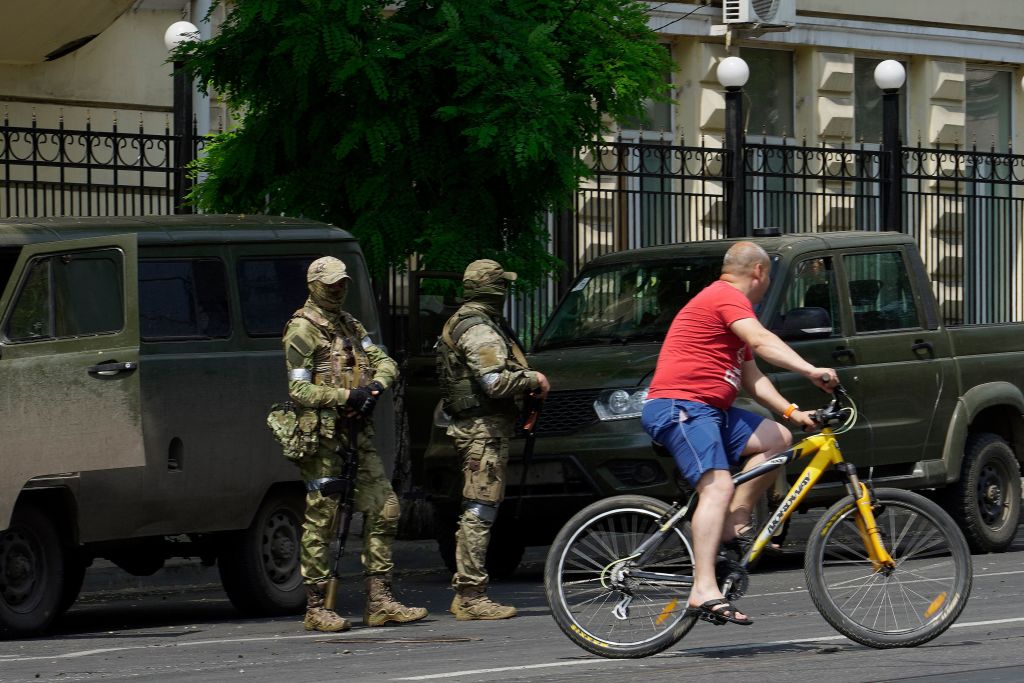The main thoroughfare of Rostov-on-Don is today crawling with military vehicles and masked soldiers carrying automatics, and the entrance to that circus – which backs onto the Rostov military headquarters – is blocked aggressively by a tank. The city is now controlled by the Wagner Group, Yevgeny Prigozhin’s private army out on the rampage and rebelling against the Russian military high command. It is a city now under occupation, and many of its citizens, under ‘official advice’, are staying home.
Telegram channels report that all civilian vehicles have been placed at a standstill, the city governor is arranging food deliveries for those caught in traffic jams, and in Rostov prisons special forces of the penitentiary service have been placed on high alert to prevent any mutiny among the inmates. Rostov-on-Don is not yet a city under martial law but has taken a decisive step towards it.
How has this happened? Following a statement yesterday on Telegram that he and his Wagner Group soldiers had been directly attacked by the Russian Army, raging about the numbers of troops lost through administrative incompetence, Prigozhin effectively declared war on the Russian MOD:
Those who destroyed our guys today, and destroyed tens, many tens of thousands of lives of Russian soldiers, will be punished… Justice in the troops will be restored.

Britain’s best politics newsletters
You get two free articles each week when you sign up to The Spectator’s emails.
Already a subscriber? Log in






Comments
Join the debate, free for a month
Be part of the conversation with other Spectator readers by getting your first month free.
UNLOCK ACCESS Try a month freeAlready a subscriber? Log in